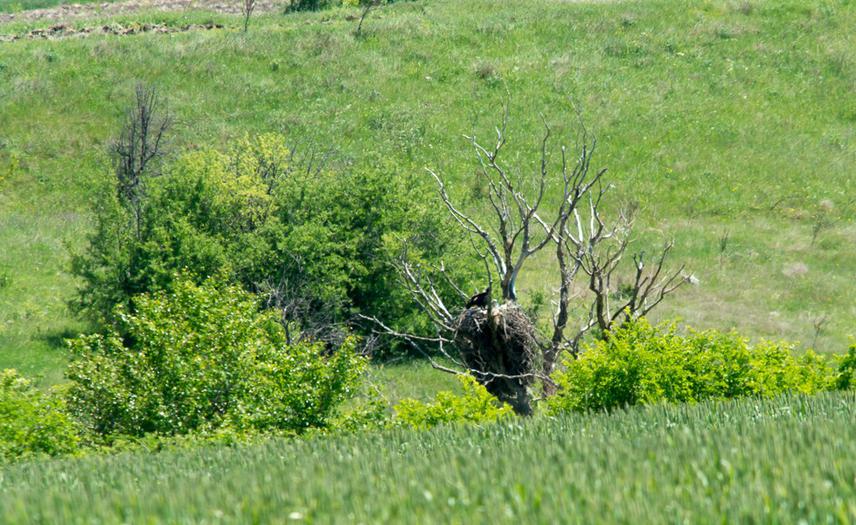Emanuel Lisichanets
Other projects
20 Jul 2015
Direct Conservation Activities for Conservation of Imperial Eagles in Macedonia
Research conducted in the previous projects shows that Imperial eagles face several threats that directly impact upon their continued survival in this region. These threats include a lack of suitable nesting sites and degradation of existing nesting sites. We have seen that immediately after the installation of artificial nests, most of the new sites have been accepted and occupied by Imperial eagles. Lack of available food because of changes in agriculture and pesticide use is also a factor in their survival as are ongoing dangers posed by electrocution. All of these threats need to be addressed in a co-ordinated fashion and, depending on available funds, we propose to deal with each threat, and to endeavour to further improve protection of the eagles and their habitat in Macedonia.

The main achievement of our work will be the continued conservation of existing Imperial eagles and the implementation of direct measures that will help in maintaining and increasing their population.
Due to the losses of most natural nesting habitats it is necessary to implement measures to increase the nesting opportunities for the eagles. Experiences to date shows that the best solution is to install enough artificial nests in suitable locations.
For a species which hunts in open landscapes, electricity poles and pylons are an attractive perch and mortality due to electrocution has a significant effect on populations. In the case of Imperial Eagles some instances of electrocution are known in Macedonia and evidence shows this is an ongoing danger. It is essential to locate the actual pylons where electrocution occurs most often and to undertake insulation of dangerous wires.
Little is known about autumn migration and wintering grounds of Imperial eagles in Macedonia. It seems that some of the eaglets remain in the breeding areas, while others migrate. In order to observe country-wide population trends, a monitoring program must be prepared and carried out on a long-term basis. Sites to be monitored have to reflect the most important Imperial eagle habitats and monitoring should to be carried out at least four times annually.
Pesticide use may adversely affect eagles through its accumulation in the food chain and direct poisoning. Poisoning can result in decreased productivity of pairs or even in the death of individuals. The occurrence of poisoning must be permanently monitored and the authorities need to be alerted. If chemical analysis of corpses proves that secondary poisoning is responsible for the deaths of Imperial Eagles or other birds of prey, a case needs to be brought before the courts of justice.